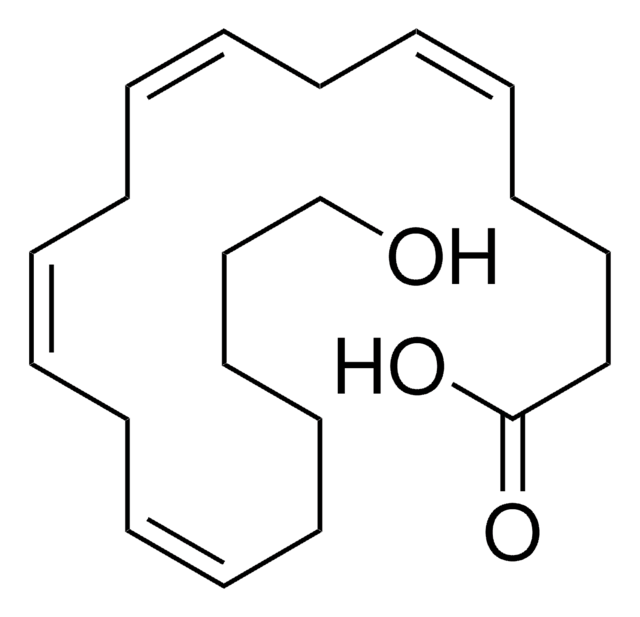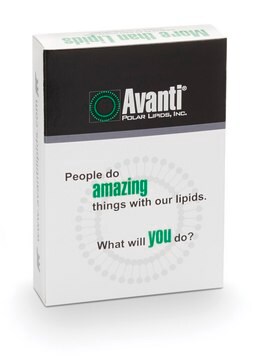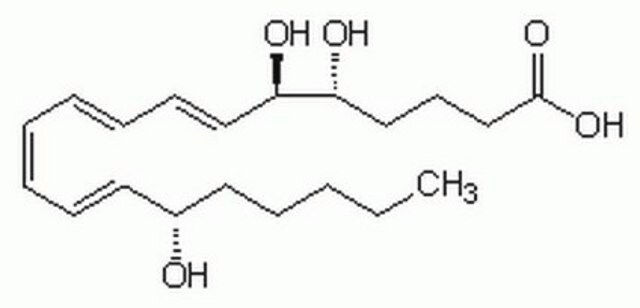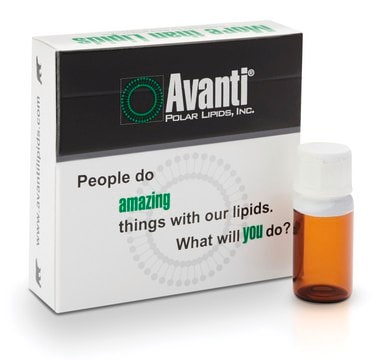H7768
12(S)-Hydroxy-(5Z,8Z,10E,14Z)-eicosatetraenoic acid
~100 μg/mL in ethanol, ≥95% (HPLC)
Synonym(s):
(S)-12-HETE
About This Item
Recommended Products
Quality Level
Assay
≥95% (HPLC)
form
liquid
concentration
~100 μg/mL in ethanol
shipped in
dry ice
storage temp.
−20°C
SMILES string
CCCCC\C=C/C[C@H](O)\C=C\C=C/C\C=C/CCCC(O)=O
InChI
1S/C20H32O3/c1-2-3-4-5-10-13-16-19(21)17-14-11-8-6-7-9-12-15-18-20(22)23/h7-11,13-14,17,19,21H,2-6,12,15-16,18H2,1H3,(H,22,23)/b9-7-,11-8-,13-10-,17-14+/t19-/m0/s1
InChI key
ZNHVWPKMFKADKW-LQWMCKPYSA-N
Looking for similar products? Visit Product Comparison Guide
Biochem/physiol Actions
Packaging
Signal Word
Danger
Hazard Statements
Precautionary Statements
Hazard Classifications
Eye Irrit. 2 - Flam. Liq. 2
Storage Class Code
3 - Flammable liquids
WGK
WGK 1
Flash Point(F)
55.4 °F
Flash Point(C)
13 °C
Regulatory Listings
Regulatory Listings are mainly provided for chemical products. Only limited information can be provided here for non-chemical products. No entry means none of the components are listed. It is the user’s obligation to ensure the safe and legal use of the product.
FSL
Group 4: Flammable liquids
Alcohols
Hazardous rank II
ISHL Indicated Name
Substances Subject to be Indicated Names
ISHL Notified Names
Substances Subject to be Notified Names
JAN Code
H7768-VAR:
H7768-25UG:
H7768-BULK:
H7768-10UG-PW:
H7768-10UG:4548173359076
H7768-50UG:
Choose from one of the most recent versions:
Already Own This Product?
Find documentation for the products that you have recently purchased in the Document Library.
Our team of scientists has experience in all areas of research including Life Science, Material Science, Chemical Synthesis, Chromatography, Analytical and many others.
Contact Technical Service









